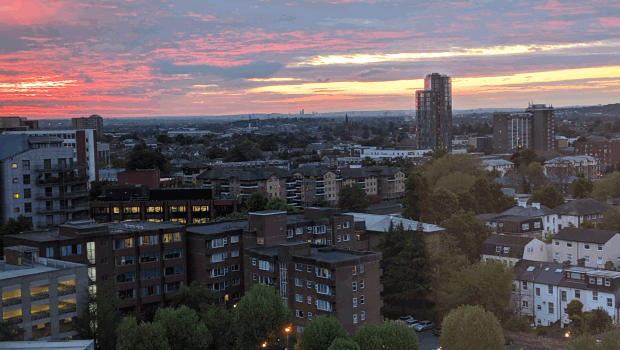UK housing market starts 2022 on front foot

The UK housing market got off to a strong start in 2022, industry research showed on Thursday.
According to the latest residential market survey from the Royal Institution of Chartered Surveyors, a net balance of 74% respondents saw an increase in house prices in January, an improvement on December’s reading of 69%. The consensus was for no change.
A net balance of 16% also said they had seen an increase in new buyer demand. That compares to December’s balance of 9% and is the strongest reading since May 2021, when the stamp duty holiday was still in full effect.
However, RICS acknowledged that the January survey was carried out before the Bank of England upped interest rates at the start of February, for the second consecutive time, to 0.5%.
Net new instructions eased slightly, to a net balance of -8%. The indicator has now been in negative territory since April, although the net balance of market appraisals rose to 3%, the first time it has been above zero since June.
The average estate agent has just 37 homes on its book, however, well below an average of 55 seen in the 2010s.
The housing market has boomed recently after the pandemic caused people to reassess housing needs and the government introduced the stamp duty holiday. Supply, meanwhile, remains restrained, further pushing up prices.
But inflation is now at a near-30 year high, which in turn has prompted the BoE to up interest rates. Coupled with a hike in energy bills and a planned increase to National Insurance contributions, economists increasingly expect the growing cost of living to dampen the property market.
Simon Rubinsohn, RICS chief economist, said: "The increase in new market appraisals is an encouraging signal that more supply may be funnelled onto the market over the coming months, but it remains to be seen whether any uplift in this area is sufficient to match the resilient trend in demand.
"That said, there is an inevitable question market over the impact of rising interest rates allied to the jump in the cost of living on homebuyer sentiment.
"For the time being, the signals on the outlook for both prices and rents remains a little worrisome."
Gabriella Dickens, senior UK economist at Pantheon Macroeconomics, said: "January’s RICS survey suggests that the housing market started the year strongly, despite the recent Omicron wave.
"Nonetheless, we think that house price growth will slow this year as demand cools. For starters, higher mortgage rates will weigh on affordability.
"House price growth has tended to struggle when CPI inflation - which we expect to jump to over 7% in April - is strong, due to the resulting hit to real incomes. The combination of high inflation and tax increases in April suggest that household’s real disposal income to set to fall by around 1.8% this year, the most since 1977."